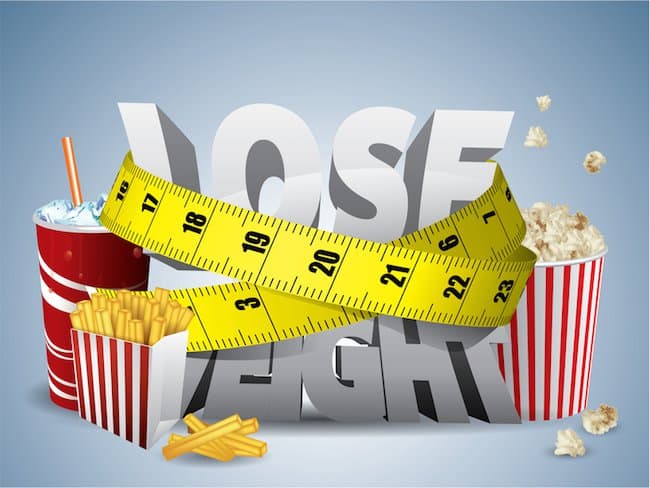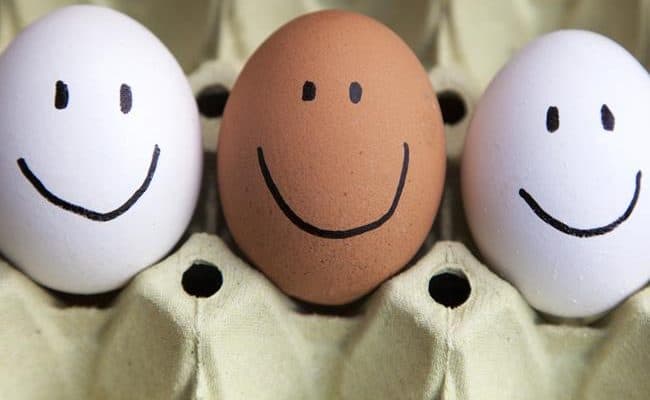
These days so much seems to revolve around losing weight. Despite the best efforts of campaigners, we still see models splashed across the pages of magazines depicting that ‘ideal’ body image.
The media is quick to latch onto news of the latest celebratory diets that are supposedly ‘guaranteed’ to get you the body you want, and then there is the plethora of weight loss reality TV shows.
In addition we are seeing more and more headlines about our obesity epidemic, and as we become more aware of the serious and well-documented health problems that come with being overweight, it is no wonder that weight loss is one of the biggest topics in today’s society.
With many conflicting theories on weight loss out there, it is not always easy to know what advice to follow. So, here is some information to help you answer one of these confusing questions: How many meals a day should you eat to lose weight?
Drastic Dieting Doesn’t Work
First things first; dieting doesn’t work. If you’re reading this, I’m sure you have tried diets in the past. Without a doubt, drastically reducing the number of calories you eat, or cutting out an entire food group (think AtkinsTM) will produce short term weight loss results.
However the key here is ‘short term’. Often people will go from one diet to another, usually when they either can’t sustain the diet they are on or see their results plateau. This is what we call ‘yo-yo dieting’ and it is not good for you.
Some evidence shows that yo-yo dieting actually increases the risk of cardiovascular disease, while other studies show this type of dieting can make you GAIN weight as it can affect your metabolism, by programming it to actually store more fat!
Eating small meals regularly
The most well known theory on how many meals you should eat a day to lose weight is the one that says that you should eat small regular meals throughout the day (around 5 or 6 meals). The logic behind this theory is based on the body’s metabolism – the breakdown of food.
By eating small regular meals, it keeps your metabolic fire burning, which helps you burn calories. Also, your body will be trained to expect food and therefore won’t go into ‘starvation mode’ where the body stores fat for later use.
This allows the body to burn off stores of fat that are simply not necessary, because it knows it will be getting a steady supply of food. These results can be achieved when eating every 3 hours, for example a small breakfast, lunch and dinner, plus 2 or 3 snacks.
Intermittent fasting
On the other hand, a growing body of evidence suggests that intermittent fasting is the best way to achieve weight loss and health. Intermittent fasting is when you eat normally one day, and fast the next. In this diet plan, fasting doesn’t mean going without food, but reducing daily your calorie intake to roughly just 25% of your normal calorie intake. This could be done by skipping meals.
The reason intermittent fasting helps with weight loss is because it causes an increase in levels of human growth hormone (HGH) in the body, which is a hormone that helps to burn fat. In addition, fasting helps to regulate insulin levels in the body (high levels of insulin are closely linked to obesity).
Please note that if you are diabetic, pre-diabetic, hypoglycaemic, pregnant or breastfeeding, you need to be cautious with fasting and consult a health professional before deciding to undertake a fasting program.
Calorie-counting
Many diets are calorie-controlled diets, where weight loss is based simply on counting calories, regardless of the number of meals you eat a day. The logic here is, as long as you eat fewer calories than your body needs to maintain your current weight you will lose weight. However the crucial point is, not all calories are the same.
On a calorie-controlled diet, it may be possible to eat several high sugar foods a day. However these contain ‘empty’ calories which your body doesn’t need and is likely to store them as fat. On the other hand, if you get your calories from healthy foods that are packed with nutrients the body requires, these calories will be actively and efficiently used up by the body to carry out all its necessary functions.
Find what’s right for you
As we’ve seen, there are differing opinions and evidence in regards to the question of how many meals a day you should eat to lose weight. And part of the reason for this is because there is no definitive answer – the answer will in fact, largely depend on the individual.
Everyone’s body is different and will breakdown, digest and store food differently. At the end of the day you have to adjust your eating habits in accordance with what feels right for you.
Some people will feel comfortable eating 6 small meals a day, while others don’t like to graze continuously. Others might like the idea of intermittent fasting, whilst people perhaps with a more active job or lifestyle may find that incompatible.
The most important thing to remember is not the number of meals a day but the kinds of meals you are eating. If you eat the right foods, no matter how calorie-dense they may be, and reduce portion size so that you never over-eat and feel full or bloated, you will be more likely to achieve your weight loss goals.
References used in this article










